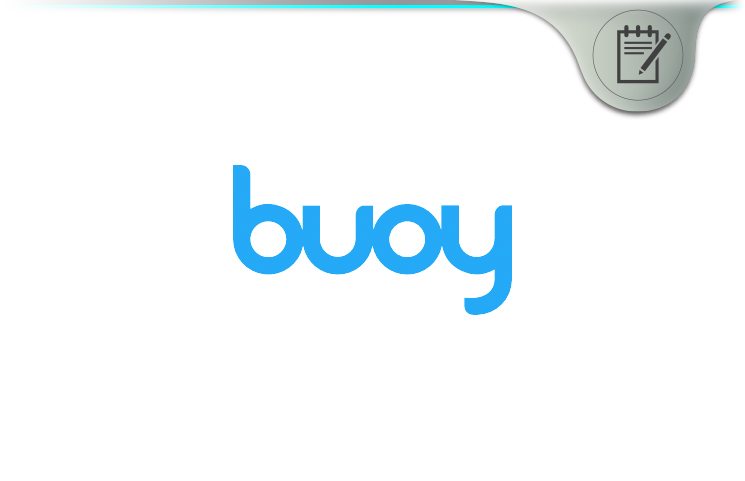Buoy is a digital health platform that promises to tell you what to do from the moment you feel sick. Read our Buoy review to discover what it can do for you.
What Is Buoy?
Digital health platforms have risen in popularity in recent years. Buoy is one such platform. Buoy promises to use artificial intelligence to create a chat-like interface. You chat with this AI and get feedback “to resemble a chat with your favorite doctor”.
Buoy promises to give you an accurate analysis of your symptoms and what to do. It’s like WebMD, but with a friendlier and more compassionate interface. Instead of telling you that you may have brain cancer when you’re experiencing headaches, for example, Buoy will give you a more likely list of conditions.
The company behind Buoy was founded by Harvard Medical School students in 2014 with the goal of “creating technology with heart” that’s “powered by data from the community”.
You can experience Buoy for yourself today online through their official website, BuoyHealth.com. The company launched its website in March 2017. Mobile apps for iPhone and Android will be released in the near future.
Visit this page to start chatting with the Buoy AI. The system will ask you a few questions, then recommend different treatments and health care tips for you.
You can create a profile through the website to make repeat visits easier. However, the platform is free to use even for unregistered users.

How Does Buoy Work?
The first question Buoy asks is whether you’re checking the system for your own health – or someone else’s health.
Next, you’ll explain the symptoms to Buoy – including how long the symptoms have lasted, and whether they’re getting better or worth.
After you explain a symptom, Buoy will ask more specific questions about that symptom. If you have a sore throat, for example, Buoy may ask if you’re coughing, and if your sore throat is getting better or worse.
Buoy will also ask questions about your age, sex, height, weight, and other important physiological indicators.
You don’t have to type anything into Buoy unless you want to. Each question comes with a pre-selected list of responses. You click each box to answer Buoy, and the AI will proceed with the questionnaire.
Ultimately, by the end of your chat with Buoy, the algorithm will analyze your answers in real time to give you a detailed, personalized response. You get a diagnosis in just 2 to 3 minutes. Then, Buoy will walk you through your results and explain what they mean.
In an example on the Buoy official website, the patient was diagnosed with acute viral sinusitis. Buoy will present a list of reasons for this diagnosis. Then, Buoy will give you the best way to treat that condition. For acute sinusitis, Buoy recommended taking it easy because you can safely treat it at home.
How Does Buoy’s Algorithm Diagnose Health Problems?
Buoy is an AI platform. The Buoy algorithm analyzes thousands of real world data points drawn from medical literature – including conventional literature and the latest studies. Buoy claims to use the same medical literature physicians study “in order to resemble the dynamic and nuanced experience of chatting with a doctor”.
The goal of Buoy is to be better than a doctor at diagnosing a condition. While a doctor may have to manually search through records, medical textbooks, and studies, Buoy’s algorithm can do it in seconds.
The algorithm goes to work as soon as you start entering symptoms. Buoy will then ask questions that reduce uncertainty the most. Buoy wants to gather a holistic view of your case by addressing a range of different factors, calculating which illnesses are more likely and which are unlikely.

How Accurate Is Buoy?
Buoy has spent three years in development. Over the years, the company has tested its program to ensure accurate results.
In an interview with TechCrunch, the company stated that they ran a quality control trial comparing 500 people’s symptoms to a doctor’s diagnosis. The system ended up being right 90% of the time.
Buoy isn’t designed to replace doctors. Buoy isn’t going to recommend “one weird trick” to cure whatever condition you have. Instead, in many cases, users will be told to visit a doctor, and will be prompted to make an appointment.
Buoy Review Summary
Buoy was launched in 2014 by Harvard Medical School student Andrew Le. Working with his colleague Eddie Reyes, Andrew partnered with a team at the Innovation Laboratory at Harvard to create a digital health tool. The tool was designed to be a health-specific search engine that gave patients pointers and compassion along the way.
You know how when you Google symptoms of an illness, and it gives you scary results like cancer? Buoy was designed to avoid this dispassionate procedure and provide a more patient-friendly experience. It’s like WebMD – but with a friendly, easier to access interface that provides more actionable data.
In March 2017, Buoy made headlines for announcing their upcoming mobile app while also releasing their web platform online. The company is currently in the middle of raising about $3 million in funding from various angel investors.
Watch for the Buoy app to appear on iPhone or Android in the near future.









